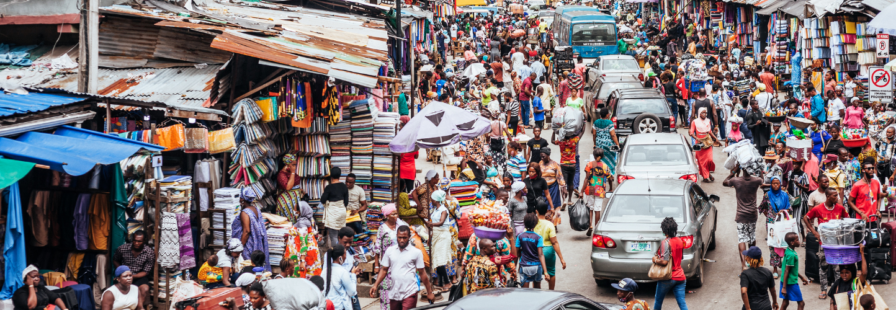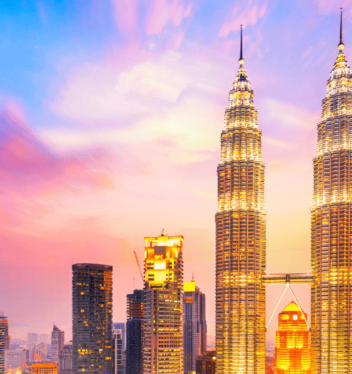The challenges of travelling in Africa

What really matters to your organisation when travelling throughout the rest of the world can quickly pale in comparison to the challenges of travelling in Africa.
If not understood thoroughly Africa’s unique business landscape can have a huge impact on the efficiency that is so important to organisations who require travel to and from the continent – which if not resolved has a further effect on compliance, safety and traveller wellbeing.
Finance
Localisation policies
Although policies vary from country to country, it is generally the case that exotic currencies and limitations on the repatriation of funds from Central and Western African countries are enforced, prescribing in-country trading in an effort to stimulate the economy. It is expected that African governments will continue to intensify the enforcement of localisation policies, particularly in resource-rich countries.
When procuring travel services in certain African countries organisations may be required to commit to spending a specified amount with local suppliers due to strict localisation policies.
What really matters: Being able to operate and do business efficiently, while remaining compliant with local policies to avoid charges and fines
Financial restrictions – moving money
Moving money out of, or around, Africa has long been challenging but has become even more so due to localisation legislation. For example:
- South Africa operates a system of exchange control over the flow of money into and out of the country
- Mozambique and Angola implement frequent black-out periods during which no money can leave the country
- Namibia, Nigeria and Angola all operate compliance regulations regarding the use of and spend with specified suppliers
Financial restrictions – withholding tax
Withholding tax is applied to any service fee for services rendered in a specific African country. Failure to withhold or pay these taxes could result in the person who is required to withhold the tax being personally liable for the tax. In addition, penalties may be levied in certain instances for the failure to withhold or to correctly withhold.
What really matters: To have visibility on all spend, benefit from local and multiple currency billing to overcome limits on the repatriation of funds and avoid charges such as withholding tax.
Safety & security
Banned airlines
Within Africa there are limited airlines servicing certain countries, many of which are actually banned by the EU. This needs to be considered and provided for by travel policies – if not, travellers can wait two or three days for an approved flight, wasting valuable time and resources.
What really matters: To have direct access to accurate intelligence on local security threats, a range of secure travel options and visibility of employees as they travel within Africa
Disease and illness
In the event of an accident, finding adequate medical care can be difficult in some areas of Africa as hospitals can be situated far away from more remote locations. Some countries within Africa also carry a high risk of disease, such as malaria, and so ensuring travellers are educated on the steps they must take to minimise chance of infection is essential. Mental wellbeing must also be safeguarded, particularly when travellers are in remote locations with limited access to a variety of food and entertainment.
What really matters: To fully understand the health and safety risks at a chosen destination and knowing that travellers can access emergency support if required
LGBTQ+ community
Legal rights are diminishing for lesbian, gay, bisexual, transgender and intersex (LGBTI) people across the African continent and so it is important for employers to be aware of what their employees could face when travelling. Mauritania, Sudan, Northern Nigeria and Southern Somalia all carry the death penalty for those who identify as LGBTQ+, with many more countries across the continent still seeing homosexuality as a crime.
What really matters: Access to local knowledge and experts can provide valuable insight into how safe it is for those from within the LGBTQ+ community to travel to certain countries.
Logistics
Communications & infrastructure
It’s estimated that there are 960 million mobile subscriptions in Africa, accounting for 80% of the entire African population. Internet subscriptions, however, are less common, with only 31% of the African population. Power availability is also scarce, with vast rural areas that are not connected to power grids, as well as frequent blackouts in major urban areas. Technology aside, a very obvious communication barrier that mining organisations face when trying to manage travel throughout Africa is the variety of languages that are spoken around the continent.
What really matters: To find ways to overcome communication challenges so that travellers can access reliable support and for operations to remain as efficient as possible
Travel limitations
Travelling to, from and within Africa is challenging on a logistical level due to limited travel options available in terms of flights, accommodation and ground transport.
Flights – There are limited flights options to most of Central Africa, with no direct flights between some neighbouring countries. In certain parts of the continent there are no airlines operating that have not been banned by the EU. There are also countries, such as Angola, where BSP is not an option for airlines.
Hotels – Most hotels and forms of accommodation do not accept credit cards, which means there is a reliance on the prepayment of hotel reservations.
Ground transport – In most countries the use of taxis or local transport is not considered a safe or reliable way to travel. Travelling by train is also not an option in most locations. Renting a car in Western or Central Africa is risky, as there are many unlicensed suppliers operating.
What really matters: To find ways to overcome the logistical challenges of travelling to, from and within Africa, while knowing that all travel is safe and compliant.








